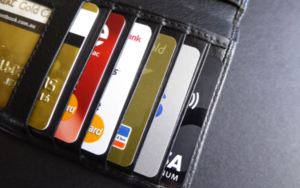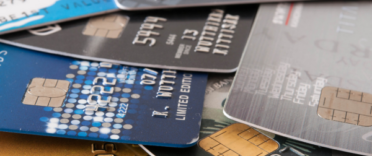 Not all credit cards are the same. UK providers offer many different types of credit cards to suit all sorts of financial circumstances. Finding the right one can save you heaps on interest and charges and some can even earn you some exciting rewards. You can use a credit card to maximise your everyday spending or to make sure you clear any expensive debt as quickly as possible. In this article, we will take you through the different types of credit cards available in the UK.
Not all credit cards are the same. UK providers offer many different types of credit cards to suit all sorts of financial circumstances. Finding the right one can save you heaps on interest and charges and some can even earn you some exciting rewards. You can use a credit card to maximise your everyday spending or to make sure you clear any expensive debt as quickly as possible. In this article, we will take you through the different types of credit cards available in the UK.
Different credit card types: Purchase credit cards
A purchase credit card is a type of credit card designed for making everyday purchases and one-off big spends. Once you buy something with the card, the cost of that purchase will go onto your card balance. If you pay the card off by the end of the billing period, you will not pay any interest on that purchase. Some purchase credit cards come with an introductory 0% period, which means you can spread the cost of a purchase over a number of months without paying any interest.
The main benefit of a purchase credit card is delaying having to pay for what you buy with the card and – if you have an interest-free period – spreading the cost of a purchase. It can also be useful if you have an unexpected one-off expense, as you can pay on your credit card and then pay off the balance once you have the cash available.
The main disadvantage of a purchase credit card is having to pay interest on your spending. This will not be a problem if you clear the card balance before the end of the billing period or before any 0% term ends. However, the interest rate at the end of the 0% period is likely to be quite high. If you have not cleared the card by this point, you could end up paying a significant amount of interest.
Head to our ‘Compare the Best 0% purchase credit cards’ page to find the best deals.
Different credit card types: Balance transfer credit cards
With a balance transfer credit card, you can move your current credit card debts onto the new card. If the balance transfer credit card has a low rate – some come with a 0% period – you can save a significant amount of money on interest, while also consolidating your debt. Debt consolidation can help you clear any debt you owe more quickly by simplifying the repayment process. Most providers will only offer the best balance transfer credit cards – and the lowest rates – to applicants with a strong credit history.
Your provider should be able to transfer the balance from your existing credit card or credit cards as soon as your new card is approved. Keep in mind that you may need to pay a percentage of the balance transferred as a fee. Most credit card companies charge between 2% and 3%. Make sure to weigh up this expense against the cost of sticking with your current credit card when you consider a balance transfer provider.
Once the balance is transferred, you can close your old accounts and focus on repaying your newly consolidated debt. If you have a 0% period on your new card, make sure to clear the balance before this expires.
You can find the best deals on balance transfer cards in our article ‘Best 0% balance transfer credit card deals’.
Different credit card types: Money transfer credit cards
Money transfer credit cards allow holders to transfer credit from the card to a current account as cash. You will be charged a fee, but it will usually be less than the cost of withdrawing cash on a standard credit card. Once you have transferred the cash over, you are free to spend it how you please, without the restrictions that usually come with making purchases on a credit card.
While there is an advantage to being able to access cash over credit, there will be a one-off fee for the transfer. You may also have to pay interest, though some cards come with an introductory 0% period. It is best to make sure that what you are buying definitely cannot be paid for with a standard purchase credit card before you consider a money transfer credit card.
The best use of a money transfer credit card is likely to be consolidating debt. If your debt is on a credit card, your best option is a balance transfer credit card. However, if your debt is an expensive overdraft or payday loan that cannot be cleared using a purchase credit card, a money transfer credit card can help you consolidate your expensive debt.
We go into more detail on money transfer cards in our article ‘A complete guide to the best money-transfer credit cards’.
Different credit card types: Credit-builder credit cards
A credit-builder card can help people with bad credit – or no credit history at all – build a history of reliable borrowing and boost their credit score. Bad credit credit card providers are much more likely to accept applicants who would otherwise struggle to get other products. By using the card responsibly and efficiently, you can steadily build your credit history to the point where you will be accepted for a wider range of credit cards.
Most credit cards for bad credit come with high interest rates. As they are specifically designed for people who have struggled to repay debt in the past, providers will charge a higher rate to cover their risk. This means that you will need to ensure you pay off the balance at the end of the month, or face a hefty interest charge. You may also find that the credit limit is relatively low. Again, this is a way for providers to minimise the risk of a cardholder spending more than they can afford to repay.
You can find more information in our article ‘Credit-builder cards – which is the best credit card if I have poor credit?’.
Different credit card types: Cashback and rewards credit cards
By using a cashback and rewards credit card you can essentially earn as you spend. You might be earning loyalty points, air miles, rewards or have cashback credited back to the card. Loyalty points and air miles will usually be redeemable through a specific retailer or supplier, depending on which card you choose. Cashback is usually paid as a percentage of your spending, though some cards will have a tiered system that means you earn a higher percentage if you cross a certain spending threshold.
The premise of these cards is that the more you spend, the more you earn. This creates the danger that you could be tempted to spend money to earn rewards, even though the rewards are unlikely to be worth more than what you have spent to get them. You may also find the provider charges an annual fee for the card, which can eat into the value of the rewards.
Do not expect a reward or cashback card to come with a particularly a low interest rate and keep in mind that you will need a good credit history to qualify for one. If you have a good credit history, always repay your balance in full at the end of the month and want to earn a bonus from your spending, a cashback or rewards card could work for you.
Check out our ‘Compare the best cashback and reward credit cards’ to find the best deals.
Different credit card types: Travel credit cards
Many credit card providers charge a fee to use your card abroad. The advantage of a specialist travel credit card is that you can use it abroad as you would at home without paying any unexpected foreign transaction fees. You could also use the card to pay in a foreign currency online.
Like when you use your credit card at home, it can be a bad idea to withdraw cash using a travel credit card. You will usually be charged a fee and the money you withdraw will begin to accrue interest immediately. If you need to withdraw cash, your best option will be a debit card or prepaid card.
Keeping fees down when you are abroad can save you a lot of money over the course of a trip and give you peace of mind that you are not wasting cash on unnecessary charges.
You can shop around for the best option on our ‘Compare the best travel credit cards’ page.
If you want to see alternative options to a type of credit card, read our article 'The best ways to take money abroad'.
Which credit card is best for me?
Now that you have read about the basics of each major type of credit card, you can make a call on what option would suit you. If you need a bit more guidance, take a look at our article ‘Which credit card is best for me?’.
Alternatively, check out the UK’s top credit cards on our ‘Best credit cards in the UK’ page or learn about checking your eligibility on our 'Check credit card eligibility: What credit cards am I eligible for?' page.
We have teamed up with Creditec* to help you compare credit card deals and check your eligibility in minutes. You will be able to find out which credit cards you are most likely to be accepted for through a soft credit check, which will not affect your credit score. You can then tailor your personalised list to sort cards by the features that matter most to you. This could mean filtering for the type of credit card you want, sorting the list by the rate of interest or highlighting the cards you are most likely to be successful in applying for. You can click here to compare deals*.
If a link has an * beside it this means that it is an affiliated link. If you go via the link Money to the Masses may receive a small fee which helps keep Money to the Masses free to use. But as you can clearly see this has in no way influenced this independent and balanced review of the product.







